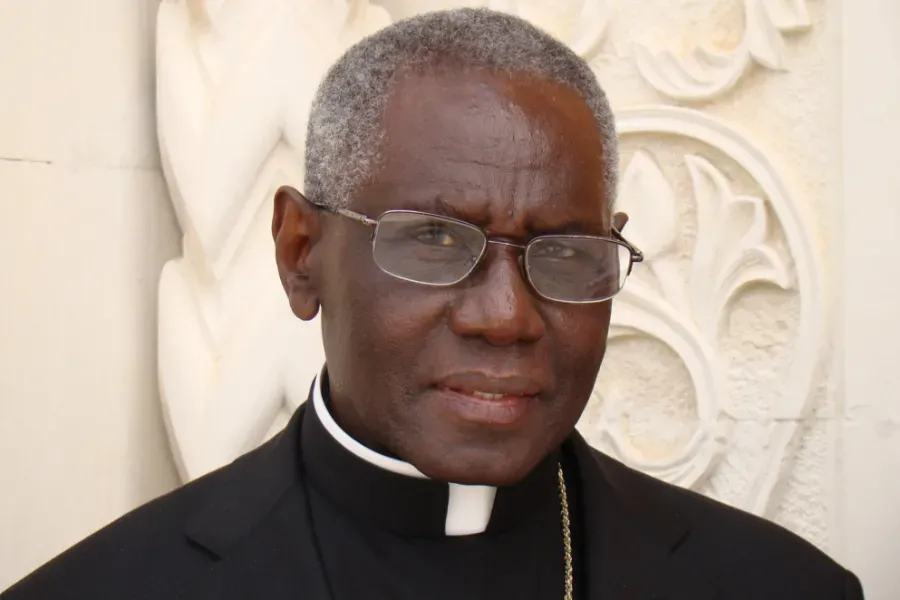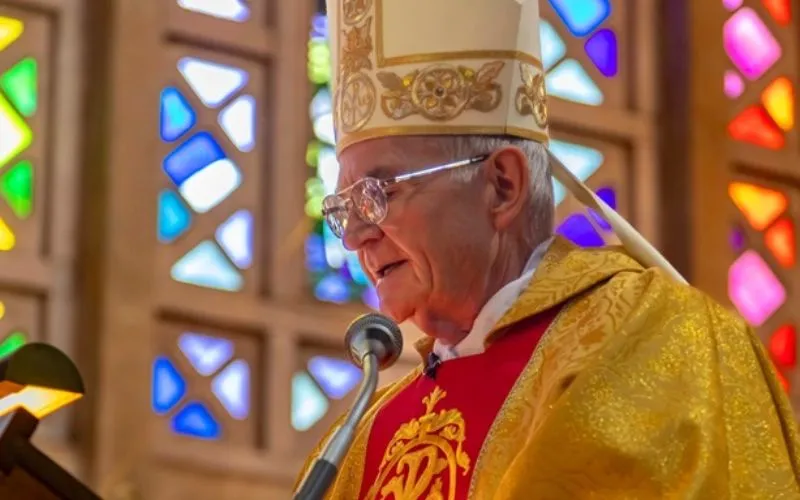Sarah also emphasized that the liturgy is about God, not the community or individual. This reality, he said, is expressed well when the liturgy is said ad orientem, meaning with the priest facing the altar, or liturgical East, rather than the people.
The cardinal also explained why he thought that silence was important in the liturgy.
“When man remains silent, he leaves a place for God,” he said. “On the contrary, when the liturgy becomes chatty, it forgets that the cross is its center, it organizes itself around the microphone.”
He said these questions are crucial, “because they determine the place we give to God,” and lamented that they had become “ideological.”
Factional struggles within the Church are a source of suffering for him, he said. “Too often we act as if everything is a question of politics, power, influence and the unjustified imposition of a hermeneutic of Vatican II that totally breaks and is irreversibly at odds with Tradition.”
(Story continues below)
He declared it “false” that he was opposed to the Second Vatican Council because he spoke of a sense of the sacred in the liturgy.
“I don’t believe that the struggle between progressives and conservatives has any meaning in the Church. These categories are political and ideological,” he said, adding that “the Church is not a field of political struggle.”
“The only thing that counts is to seek God ever more deeply, to meet him there and humbly kneel down to adore him.”
It was unfortunate, Cardinal Sarah said, that there are “ideologues” who set the pre-Council Church against the post-Council Church.
According to the cardinal, these people “are dividers; they are doing the work of the devil.”
“The Church is one, without rupture, without changing course, because her Founder ‘Jesus Christ is the same yesterday, today, and forever,’” he said. “She goes towards God, she directs us towards him. From the profession of faith of St. Peter to Pope Francis through Vatican II, the Church turns us towards Christ.”
Now that he is retired, Sarah said that he intended to continue working and was happy to have more time to pray and read.
“I will continue to write, to speak, to travel. Here in Rome, I continue to receive priests and faithful from all over the world,” he said.
Sarah will continue to serve as a member of the Vatican’s Congregation for the Causes of the Saints, where he said he saw “with immense joy how the Church is bursting with holiness.”
“More than ever the Church needs bishops who speak clearly, free and faithful to Jesus Christ and to the doctrinal and moral teachings of his Gospel,” he said. “I intend to continue this mission and even amplify it.”
Hannah Brockhaus is Catholic News Agency's senior Rome correspondent. She grew up in Omaha, Nebraska, and has a degree in English from Truman State University in Missouri.








